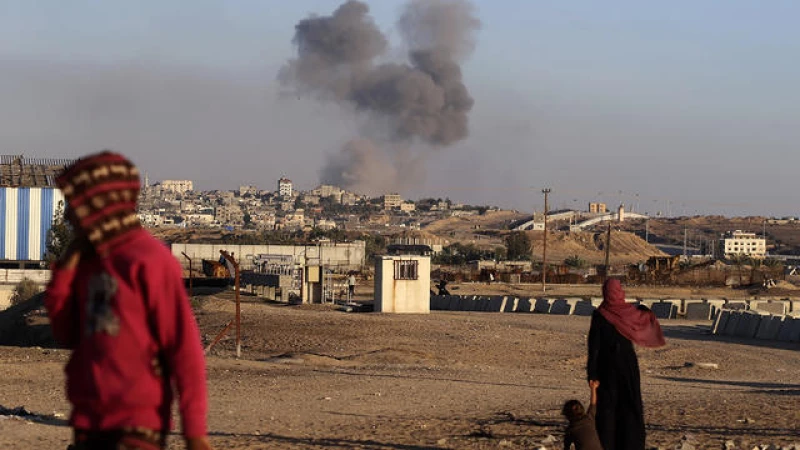Recent actions have shown that the White House decided to halt a delivery of weapons to Israel as they neared a decision to carry out an operation in Rafah, a city in southern Gaza. This decision was confirmed by Defense Secretary Lloyd Austin during a Congressional testimony, stating that a shipment of high payload munitions was put on hold.
Israel's military, on the other hand, declared the initiation of "targeted strikes" against Hamas in Rafah, which is considered to be the last stronghold of the group. This move came after Israel's War Cabinet gave the green light for a military operation in the area.
The U.S. has consistently advised against a significant ground incursion in Rafah, where a large number of people have sought refuge after escaping other parts of Gaza. Despite ongoing discussions with Israel regarding humanitarian concerns in Rafah and strategies for dealing with Hamas, these issues have not been adequately addressed. As Israeli leaders approached a decision on Rafah, the Biden administration began to reassess upcoming weapons transfers that could be utilized in the operation, resulting in the temporary suspension of one shipment last week.
The shipment in question contains a total of 1,800 2,000-pound bombs and 1,700 500-pound bombs. The Biden administration is particularly worried about the potential severe damage the larger bombs could cause in urban areas, according to a senior official. As of now, the U.S. has not made a decision on how to proceed with this specific shipment.
Reports of the pause on weapons delivery come after days of the administration playing down any delays. Israeli tanks have seized control of the Gaza side of the Rafah border near Egypt, effectively closing off Gaza's main aid routes.
The official clarified that the halted shipment is unrelated to the recent funding for Israel approved by Congress. Israel has been hinting at a potential ground incursion in Rafah, with the operation officially commencing after Hamas rejected a cease-fire proposal that Israel deemed insufficient.
Cease-fire negotiations are ongoing in the region, with CIA director Bill Burns currently in Israel for discussions with Prime Minister Benjamin Netanyahu. The decision to pause the weapons shipment and the transparency from a senior official about the rationale behind the pause reflect the Biden administration's increasing concerns about the impact of Israel's actions on Palestinian civilians.







